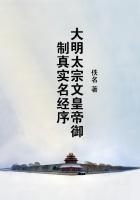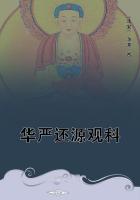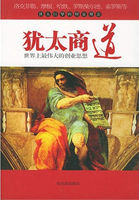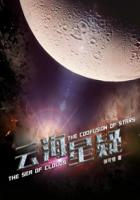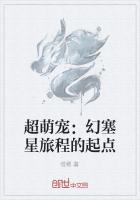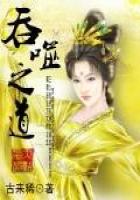On the diggings up to twenty odd years ago -- and as far back as I can remember -- on Lambing Flat, the Pipe Clays, Gulgong, Home Rule, and so through the roaring list; in bark huts, tents, public-houses, sly grog shanties, and -- well, the most glorious voice of all belonged to a bad girl. We were only children and didn't know why she was bad, but we weren't allowed to play near or go near the hut she lived in, and we were trained to believe firmly that something awful would happen to us if we stayed to answer a word, and didn't run away as fast as our legs could carry us, if she attempted to speak to us. We had before us the dread example of one urchin, who got an awful hiding and went on bread and water for twenty-four hours for allowing her to kiss him and give him lollies. She didn't look bad -- she looked to us like a grand and beautiful lady-girl -- but we got instilled into us the idea that she was an awful bad woman, something more terrible even than a drunken man, and one whose presence was to be feared and fled from. There were two other girls in the hut with her, also a pretty little girl, who called her "Auntie", and with whom we were not allowed to play -- for they were all bad; which puzzled us as much as child-minds can be puzzled.
We couldn't make out how everybody in one house could be bad.
We used to wonder why these bad people weren't hunted away or put in gaol if they were so bad. And another thing puzzled us. Slipping out after dark, when the bad girls happened to be singing in their house, we'd sometimes run against men hanging round the hut by ones and twos and threes, listening.
They seemed mysterious. They were mostly good men, and we concluded they were listening and watching the bad women's house to see that they didn't kill anyone, or steal and run away with any bad little boys -- ourselves, for instance -- who ran out after dark; which, as we were informed, those bad people were always on the lookout for a chance to do.
We were told in after years that old Peter McKenzie (a respectable, married, hard-working digger) would sometimes steal up opposite the bad door in the dark, and throw in money done up in a piece of paper, and listen round until the bad girl had sung the "Bonnie Hills of Scotland" two or three times. Then he'd go and get drunk, and stay drunk two or three days at a time. And his wife caught him throwing the money in one night, and there was a terrible row, and she left him; and people always said it was all a mistake.
But we couldn't see the mistake then.
But I can hear that girl's voice through the night, twenty years ago:
Oh! the bloomin' heath, and the pale blue bell, In my bonnet then I wore;
And memory knows no brighter theme Than those happy days of yore.
Scotland! Land of chief and song!
Oh, what charms to thee belong!
And I am old enough to understand why poor Peter McKenzie -- who was married to a Saxon, and a Tartar -- went and got drunk when the bad girl sang "The Bonnie Hills of Scotland."
His anxious eye might look in vain For some loved form it knew!
. . . . .
And yet another thing puzzled us greatly at the time.
Next door to the bad girl's house there lived a very respectable family -- a family of good girls with whom we were allowed to play, and from whom we got lollies (those hard old red-and-white "fish lollies" that grocers sent home with parcels of groceries and receipted bills).
Now one washing day, they being as glad to get rid of us at home as we were to get out, we went over to the good house and found no one at home except the grown-up daughter, who used to sing for us, and read "Robinson Crusoe" of nights, "out loud", and give us more lollies than any of the rest -- and with whom we were passionately in love, notwithstanding the fact that she was engaged to a "grown-up man" -- (we reckoned he'd be dead and out of the way by the time we were old enough to marry her). She was washing. She had carried the stool and tub over against the stick fence which separated her house from the bad house; and, to our astonishment and dismay, the bad girl had brought HER tub over against her side of the fence. They stood and worked with their shoulders to the fence between them, and heads bent down close to it.
The bad girl would sing a few words, and the good girl after her, over and over again. They sang very low, we thought.
Presently the good grown-up girl turned her head and caught sight of us.
She jumped, and her face went flaming red; she laid hold of the stool and carried it, tub and all, away from that fence in a hurry.
And the bad grown-up girl took her tub back to her house.
The good grown-up girl made us promise never to tell what we saw -- that she'd been talking to a bad girl -- else she would never, never marry us.
She told me, in after years, when she'd grown up to be a grandmother, that the bad girl was surreptitiously teaching her to sing "Madeline" that day.
I remember a dreadful story of a digger who went and shot himself one night after hearing that bad girl sing. We thought then what a frightfully bad woman she must be. The incident terrified us; and thereafter we kept carefully and fearfully out of reach of her voice, lest we should go and do what the digger did.
. . . . .
I have a dreamy recollection of a circus on Gulgong in the roaring days, more than twenty years ago, and a woman (to my child-fancy a being from another world) standing in the middle of the ring, singing:
Out in the cold world -- out in the street -- Asking a penny from each one I meet;
Cheerless I wander about all the day, Wearing my young life in sorrow away!
That last line haunted me for many years. I remember being frightened by women sobbing (and one or two great grown-up diggers also) that night in that circus.
"Father, Dear Father, Come Home with Me Now", was a sacred song then, not a peg for vulgar parodies and more vulgar "business" for fourth-rate clowns and corner-men. Then there was "The Prairie Flower".


